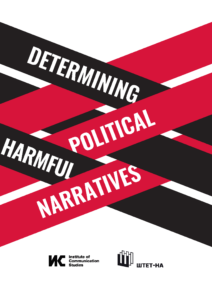
Determining Political Harmful Narratives: Second Report
Period: November - December 2023
Short version
Full version
Analysis of public communications from political parties during these months reveals a frequent reliance on unverified claims and baseless allegations of corruption, lack of transparency, incompetence, and misconduct. These are often propagated via party websites and the Facebook pages of political figures to discredit opponents. The discourse from leading political entities primarily employs language and phrases intended to disparage opponents or specific groups, fostering division. Notably, this period saw prevalent accusations aligning parties with either "pro-European" or "anti-European" stances, contributing to polarization.
The report found that in most instances, these harmful narratives originated from politicians rather than journalists. There was a minor uptick in the presence of harmful narratives in online media content for November and December. The trend of uncritically passing along unverified statements from political figures persists, often replicating party declarations and politicians’ speeches verbatim. Television coverage remained largely unchanged from the previous monitoring period in terms of content with harmful narratives, with major parties like SDSM, VMRO-DPMNE, and DUI being the most prominent actors included in prime-time broadcasts.
This practice of abandoning journalistic standards, along with biased and subjective reporting, not only undermines public dialogue and contaminates the media landscape but also infringes upon fundamental democratic values and the essence of open debate.
Contact:

